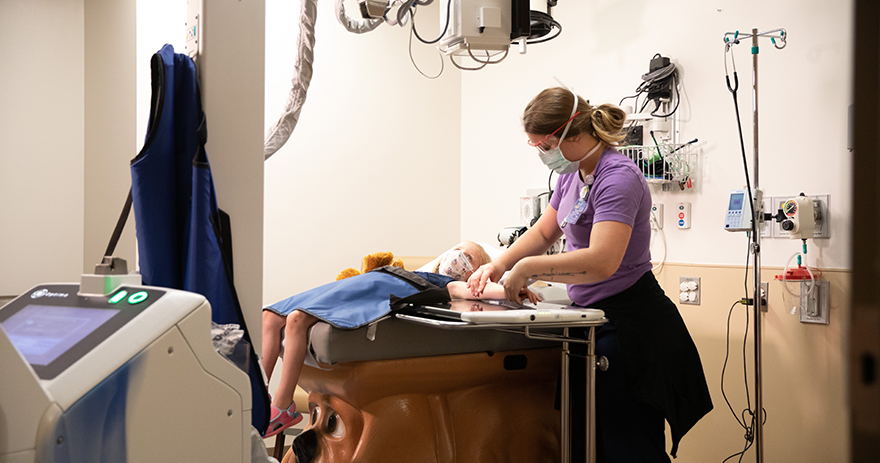When is it Time to go to the ER?
- Winter 2022


It's common knowledge to head to the closest emergency department when you face a life-threatening condition such as a heart attach, stroke or major trauma. Emergency rooms provide the quickest and most comprehensive medical solution in those situations. But in the middle of the night when your child wakes up with a high fever and rash, should you go to the ER or wait for the clinic or urgent care to open?
It can be a difficult judgement call to make. In many cases, you may have enough time to contact your primary care provider’s office to get a professional opinion. They’ll be able to tell you if you should go the emergency room or come to their office for an appointment.
Another option is to call your insurance provider’s 24-hour helpline if they have one. These call lines are often staffed with medical professionals who offer advice about whether to go straight to the emergency room, visit urgent care or take a wait-and-see approach.
But when you’re in doubt, do not delay seeking medical care.
The following conditions typically require emergency medical services:
- Chest pain (call 911)
- Shortness of breath
- Serious burn
- Electric shock
- Complications from pregnancy
- Altered mental state
- Stroke-like symptoms
- Fever in infants
- High fever in adults
- Sudden severe headache
- Severe vomiting
- Severe diarrhea
- Seizure
- Amputation of finger or extremity
- Unconsciousness
- Major head injury
- Suspected fractures of the arms or legs or broken bones
- Sudden weakness or drooping on one side of the body
- Suddenly not able to speak, see, walk or move
- Sudden confusion
- Deep wound
- Poisoning or drug overdose
- Inhaled smoke or poisonous fumes
- Uncontrolled pain anywhere on the body
- Suicidal thoughts
- Severe allergic reaction
- Coughing or vomiting blood
- Passing out or fainting
- Severe weakness or dizziness
- Heavy bleeding
- Sexual assault
In a true emergency, such as chest pain, weakness or numbness, or a change in mental status, stop what you are doing and call 911.

